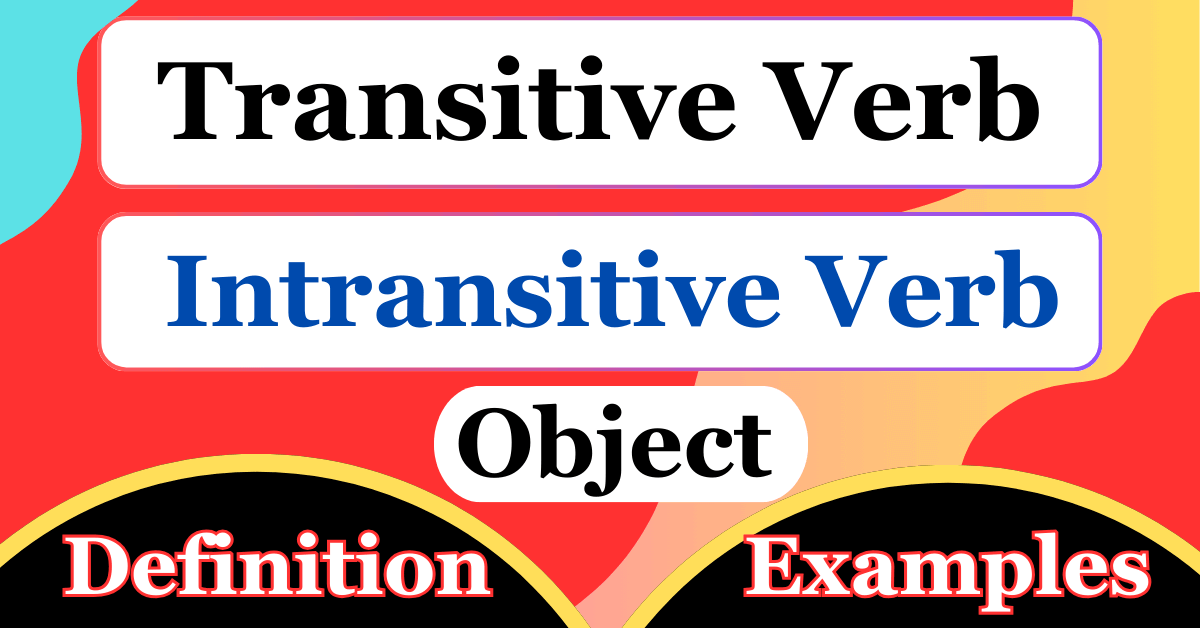Transitive Verb : Definition, Examples
A verb that takes an object is called a Transitive Verb. A transitive verb is a verb that requires one or more objects to complete its meaning.
For example,
- Children like chocolates.
In this sentence, “like” is a transitive verb because it needs an object to make sense. When we ask a question to the verb “like” with “What”, we get an answer. This answer is an object. “chocolates” is an object in this sentence. - They play football.
In this sentence, “play” is a transitive verb because it requires an object to make sense. When we ask a question to the verb “play” with “What”, we get an answer. This answer is an object. “football” is an object in this sentence. - She is eating rice.
In this sentence, “eat” is a transitive verb because it requires an object to make sense. When we ask a question to the verb “eat” with “What”, we get an answer. This answer is an object. “rice” is an object in this sentence. - I want a book.
In this sentence, “want” is a transitive verb because it requires an object to make sense. When we ask a question to the verb “want” with “What”, we get an answer. This answer is an object. “a book” is an object in this sentence. - Rahul gave me a book.
In this sentence, “gave” is the past form of “give”. “Give” is a transitive verb because it requires an object to make sense. This sentence contains double objects. If we ask a question to the verb “give” with “What”, we get the answer “a book”. “a book” is an object. If we ask a question to the verb “give” with “Whom”, we get the answer “me”. “me” is an object.
In this sentence, “a book” is a direct object and “me” is an indirect object. - The teacher asked him a question.
In this sentence, “asked” is the past form of “ask”. “Ask” is a transitive verb because it requires an object to make sense. This sentence contains double objects. “a question” and “him” are objects.
In this sentence, “a question” is a direct object, and “him” is an indirect object.
Intransitive Verb : Definition, Examples
A verb that doesn’t take an object is called an Intransitive Verb. An intransitive verb is a verb that doesn’t require an object to complete its meaning.
For example,
- The boy is smiling.
In this sentence, “smile” is an intransitive verb because it doesn’t need an object to make sense. - The train is running slowly.
In this sentence, “run” is an intransitive verb because it doesn’t need an object to make sense. - The birds are flying.
In this sentence, “fly” is an intransitive verb because it doesn’t need an object to make sense. - She sleeps.
In this sentence, “sleep” is an intransitive verb because it doesn’t need an object to make sense. - The girl is laughing.
In this sentence, “laugh” is an intransitive verb because it doesn’t need an object to make sense.
What is an Object? Examples
- If we ask a verb a question with “what” or “whom”, we will get an answer. This answer is an object.
For example, - I play football.
Here, if we ask a question to the verb “play” with “What”, we get an answer. This answer is an object. So, “football” is the object in this sentence. - I know him.
Here, if we ask a question to the verb “know” with “Whom”, we get an answer. This answer is an object. So, “him” is the object in this sentence.
FAQs
Is “like” a transitive verb ?
Yes. “Like” is a transitive verb because it requires an object to make sense.
Is “catch” an intransitive verb ?
No. “Catch” is a transitive verb because it requires an object to make sense.
Is “sleep” an intransitive verb ?
Yes. “Sleep” is an intransitive verb because it doesn’t require any object to make sense.

